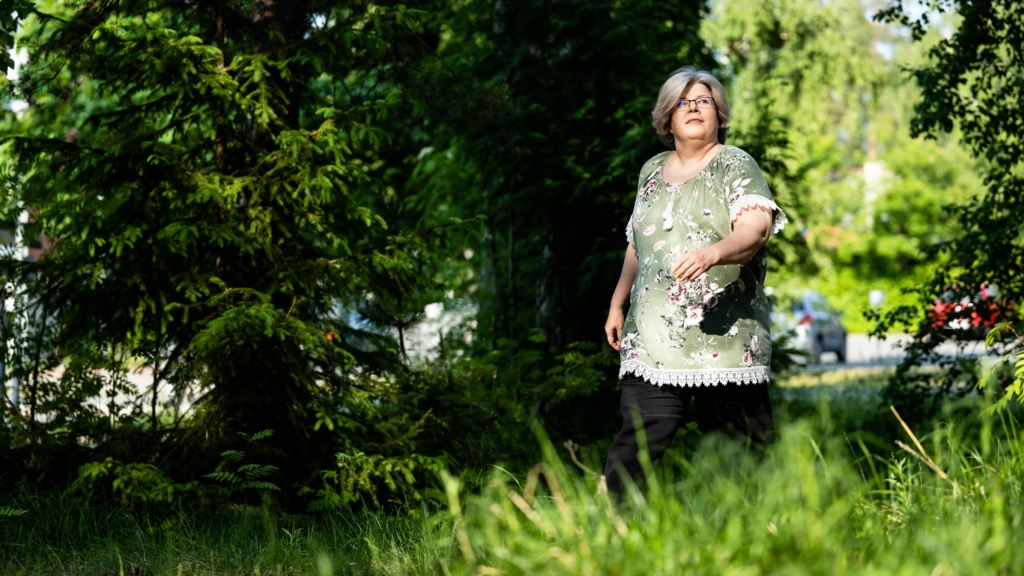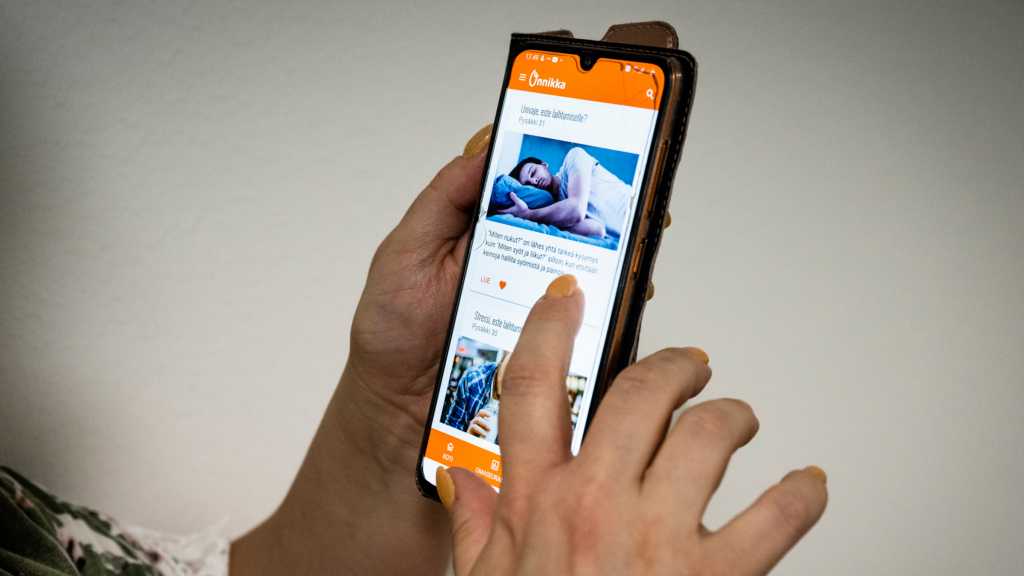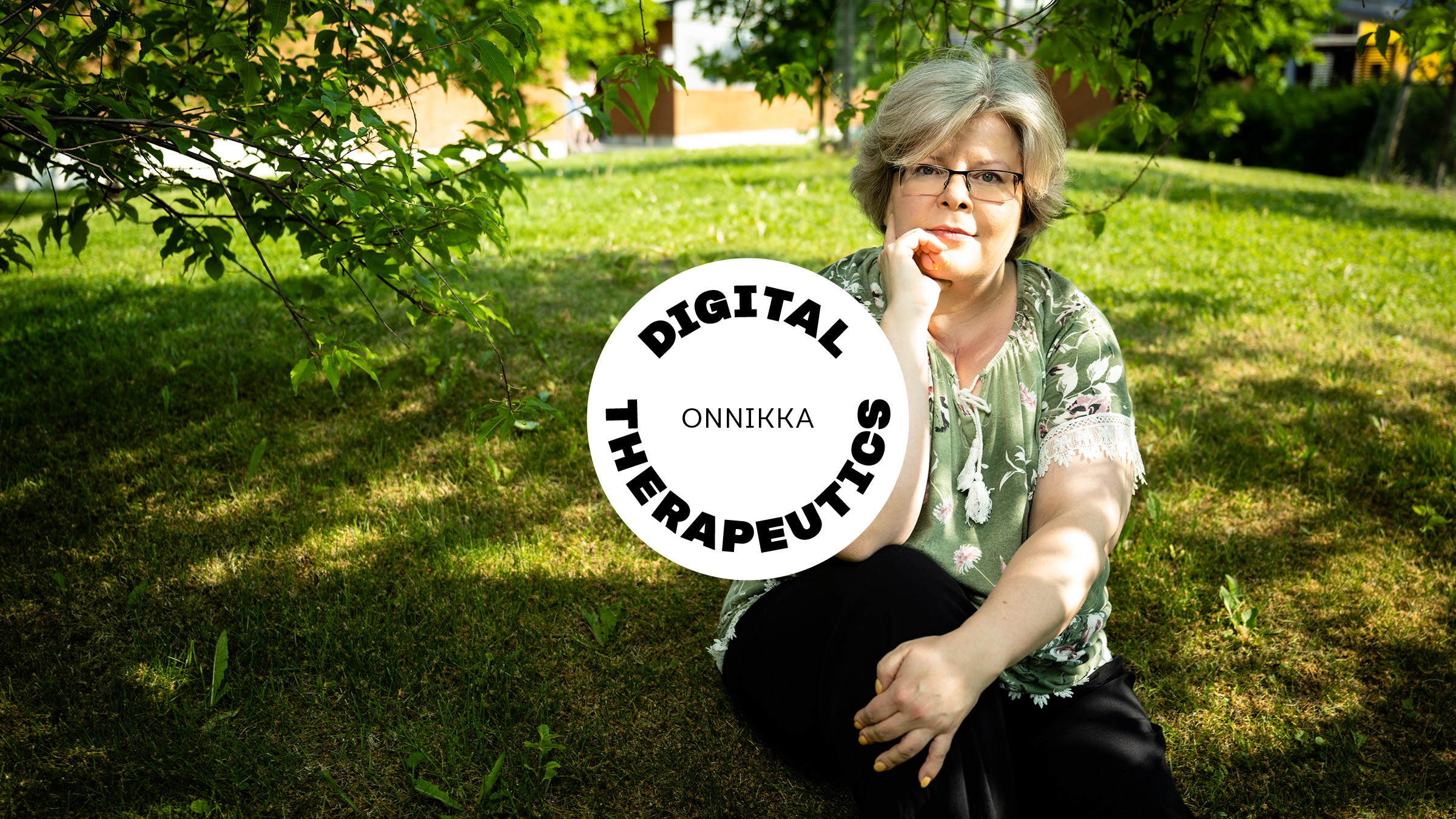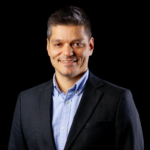“I joined Weight Watchers when I was 13. I needed my mother’s permission, and she gave it. I weighed 70 kilos. I was the youngest member of the organisation in Finland.
I ate according to the Weight Watchers scoring system. All food was weighed and recorded in a notebook. In the first week I lost 4.7 kilos, most of which was probably fluid. During the school summer break, my total weight loss was about 13 kilos.
But then I put the weight back on quickly. I learned to ‘yo-yo’ with diets at Weight Watchers, which thankfully many places nowadays know how to warn against.
Losing weight too quickly messes up your body. When you’re struggling with low calories, your body goes into austerity mode and your mind is as grumpy as a ravenous beast. Then, when you start eating more normally, your stone-age body decides that there might soon be another food shortage, so it stores up all the energy it can.
I’ve tried all kinds of diets over the last 40 years. I once lost 20 kilos in three months by taking Nutrilett and going to group exercise classes.
With all my dieting, the weight has come back, and I’ve always put on more.
I weighed 109 kilos last summer when I decided to try out the Onnikka app.”
Obesity is not due to lack of information
“Obesity is not caused by not knowing enough. Obese people know where obesity comes from and how they should eat and exercise. The difficulties are related to emotional control. Emotional eating is the most devilish addiction you can have when you can’t stop eating. The addictive and pleasurable thing has to be repeated several times a day, even if it is necessary to keep it under control.
I am well up on about everything about losing weight. A couple of years ago I read stories in the media about Onnikka being tested in the Oulu area. I liked it that the app seemed to treat the dieter as an intelligent adult. It doesn’t impose advice top down but talks to you like a peer. Onnikka does not promise quick results. Users are told that their weight may even go up during the trial due to a wide range of weight management issues.

When I saw an ad in Keskisuomalainen newspaper that they were looking for people to take part in the Onnikka pilot, I immediately applied.
I followed the programme as instructed. I read the ‘stops’ that came on Mondays and Thursdays, answered the questions and did a steady stream of weekly assignments on different topics. I weighed myself every Monday.
The most important insights came from the emotional side: Do I talk to myself nicely or nastily? In childhood, did my family comfort me with treats when I was in a bad mood? I learned to listen to how I feel when I start eating. Am I hungry, bored, or do I eat to stay awake?

I used to do things on autopilot on shopping trips and I’d do things on impulse. Now I’ve learned to feel whether I really want to do things. I can stand in front of a shelf of chocolate bars for ages and tell myself that I don’t have to put them in the shopping basket.”
I can stand in front of a shelf of chocolate bars for ages and tell myself that I don’t have to put them in the shopping basket.
You can repeat good or bad things
“Onnikka has guided me to eat four meals a day. With the right eating rhythm, my blood sugar doesn’t spike and I don’t get starved. In general, repeating things in a certain way leads to a certain result. You can repeat good or bad things.
Of course, there will be lapses, but nowadays I see them as learning points. Weight management cannot be based on never making mistakes again. Onnikka is not to blame. It points out, in a constructive tone, that I’ve been easing off for a while but that the overall direction has been good, so let’s get back on track.
A check-up weigh-in in June showed that I had lost five kilos in a year. Other values are even more important to me. My blood pressure and cholesterol levels dropped, and the percentage of good quality fat has increased. My waist circumference went down by two inches, my liver and other internal organs are grateful.
This is not the end, but a learning curve on a long journey. Weight loss requires a lot of small changes. The slower and more gently you learn to change your lifestyle, the more likely it is that the change you make will last.”
The pilot project was part of Sitra’s Health Data 2030 project, which develops solutions and ground rules for cross-border use of health data in Europe and supports the competitiveness of the Finnish health sector. Sitra’s aim has been to gather information on the use of new digital therapies as part of the care workflow.


Read more
Read more about the experiences of other patients and care staff during the trial.
Do I really need this snack?
A stick of celery in the morning takes the hunger away
Four per cent weight loss by using a mobile app
Digital healthcare apps make everyday life easier and curb costs – patients and healthcare professionals want more tools for managing medical conditions